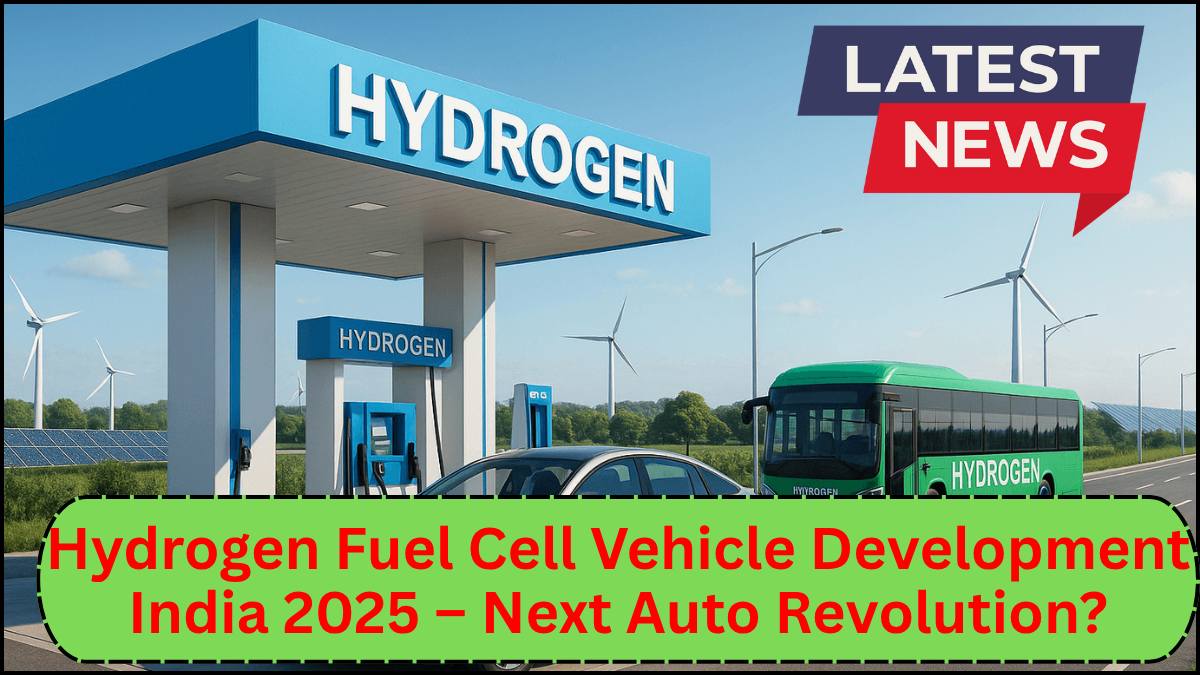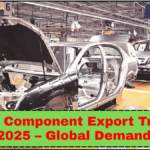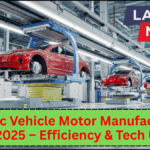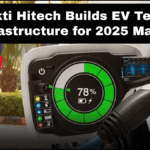India’s push toward sustainable mobility is entering a transformative phase. While electric vehicles (EVs) have dominated headlines in recent years, hydrogen fuel cell vehicle development in India 2025 is quietly laying the groundwork for what could become the next major leap in the automotive sector. With a growing focus on energy diversification and cutting down emissions, hydrogen cars are poised to reshape the conversation around alternative fuel in India.

What Are Hydrogen Fuel Cell Vehicles?
Hydrogen fuel cell vehicles (FCVs) use hydrogen gas to power an electric motor. Unlike battery electric vehicles that store electricity, FCVs generate electricity through a chemical reaction between hydrogen and oxygen, with water vapor as the only emission. This clean energy solution offers high efficiency, long range, and fast refueling—making it a compelling candidate in India’s evolving mobility landscape.
Why Hydrogen and Why Now?
India is the third-largest emitter of greenhouse gases, and transportation is a significant contributor. While EVs are being promoted to reduce carbon emissions, challenges like grid dependency, lithium sourcing, and long charging times limit their scalability. Hydrogen fuel cells offer a complementary solution.
-
Fast Refueling Times – Comparable to petrol or diesel vehicles.
-
Longer Range – Hydrogen cars can often travel over 600 km on a full tank.
-
Heavy-Duty Compatibility – Ideal for buses, trucks, and long-haul vehicles.
-
Decentralized Energy Source – Hydrogen can be produced locally using solar or wind-powered electrolysis.
These advantages are pushing policymakers and automakers to explore hydrogen fuel cell vehicle development in India 2025 with renewed urgency.
Government Initiatives and Policy Support
India’s National Green Hydrogen Mission, launched in 2023, laid the foundation for a hydrogen economy. The goal: to make India a global hub for green hydrogen production and usage. With an outlay of ₹19,744 crore, this mission supports domestic hydrogen production, infrastructure, and R&D in mobility solutions.
The government is also piloting hydrogen-powered buses and trains in various states, including Gujarat and Maharashtra. These pilot projects aim to test the real-world viability of hydrogen as an alternative fuel in Indian conditions.
Automakers Leading the Hydrogen Charge
Several major players have already stepped into the hydrogen race:
-
Tata Motors is developing hydrogen fuel cell buses for urban public transport.
-
Ashok Leyland unveiled a hydrogen internal combustion engine-based truck prototype.
-
Toyota Kirloskar Motors, in partnership with the International Center for Automotive Technology (ICAT), is testing the Mirai hydrogen car in India.
-
Reliance Industries has announced plans to develop a hydrogen ecosystem, including production, distribution, and vehicle integration.
By 2025, these efforts are expected to converge into tangible market offerings, especially in commercial segments.
Infrastructure: The Missing Puzzle Piece
One of the biggest bottlenecks for hydrogen vehicle adoption is infrastructure. India currently has limited hydrogen refueling stations, mostly restricted to pilot zones. However, the Ministry of Road Transport and Highways has proposed setting up hydrogen refueling stations along major highways under the Green Hydrogen Corridor initiative.
Collaborations with global partners and investments in hydrogen production plants—especially through electrolysis powered by renewables—will be critical to scaling up access and affordability.
Is India Ready for Hydrogen Cars?
India’s readiness hinges on a multi-pronged strategy:
-
Developing a robust hydrogen supply chain.
-
Subsidizing initial costs of hydrogen cars and infrastructure.
-
Training a specialized workforce for hydrogen technologies.
-
Coordinating between private and public sectors.
If these elements align, hydrogen fuel cell vehicle development in India 2025 won’t just be an experiment—it will mark the beginning of the next automotive revolution.
Comparing EVs and Hydrogen FCVs
| Feature | Electric Vehicles (EVs) | Hydrogen Fuel Cell Vehicles (FCVs) |
|---|---|---|
| Emissions | Zero tailpipe | Zero tailpipe (only water vapor) |
| Refueling/Charging Time | 30 mins – several hours | 3–5 minutes |
| Range | 200–400 km | 500–700 km |
| Ideal For | Personal use, city commutes | Heavy transport, long-haul |
| Infrastructure | Expanding | Nascent, needs investment |
FAQs on Hydrogen Fuel Cell Vehicles in India
Q1. What is a hydrogen fuel cell vehicle?
A hydrogen fuel cell vehicle uses hydrogen gas to generate electricity through a fuel cell, powering an electric motor and emitting only water vapor.
Q2. Are hydrogen cars better than electric cars?
Each has strengths. Hydrogen cars refuel quickly and offer longer range, making them ideal for commercial and long-distance use, whereas EVs are more suited for urban commuting.
Q3. Is hydrogen fuel safe?
Yes, with proper handling and storage. Hydrogen is flammable but disperses quickly, and modern fuel tanks are designed with multiple safety layers.
Q4. When will hydrogen cars be available in India?
Pilot models are already being tested, and commercial rollouts—particularly for buses and trucks—are expected by 2025.
Q5. How is hydrogen produced in India?
Hydrogen can be produced through various methods. Green hydrogen, the cleanest form, is made by electrolysis of water using renewable energy.
click here to learn more



